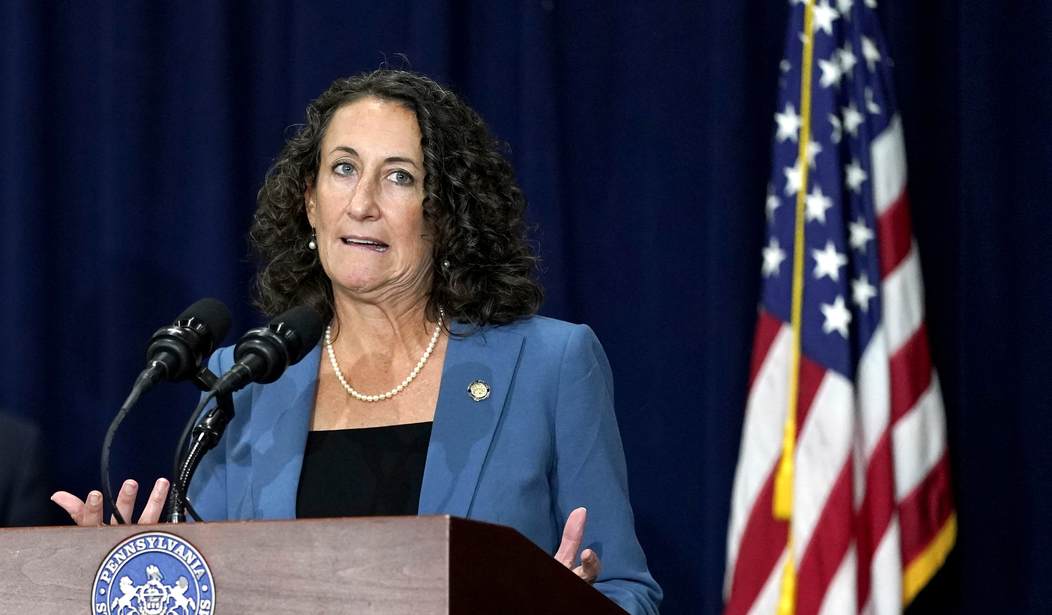Earlier on Saturday the Pennsylvania Supreme Court issued a short decision ordering dismissal of the complaint filed by Congressman Mike Kelly and seven others challenging the legality of “no excuse” mail-in voting adopted by the Pennsylvania Legislature. The complaint alleged that such a system violated express provisions of the Pennsylvania Constitution, which require in-person voting subject only to very limited exceptions for “absent electors” within four very narrow classes.
The Pennsylvania Supreme Court did not address the merits of the allegations. It dismissed the complaint solely on the equitable doctrine of “laches,” which can be applied when one party to a dispute is seen by the Court as having “sat on its rights” with regard to a legal claim, and the opposing party would be unfairly injured to allow the party asserting its rights to prevail after having failed to act when it was first aware of the claim.
Here is what the Court wrote:
Upon consideration of the parties’ filings in Commonwealth Court, we hereby dismiss the petition for review with prejudice based upon Petitioners’ failure to file their facial constitutional challenge in a timely manner. Petitioners’ challenge violates the doctrine of laches given their complete failure to act with due diligence in commencing their facial constitutional challenge, which was ascertainable upon Act 77’s enactment. It is well-established that “[l]aches is an equitable doctrine that bars relief when a complaining party is guilty of want of due diligence in failing to promptly institute an action to the prejudice of another.”
As I have pointed out many times, judges in Pennsylvania, including Supreme Court judges, are elected in partisan contests where representatives from political parties run against each other. There are currently five Democrats and two Republicans on the seven-member Court.
The vote today was 7-0, but both Republican members dissented from the outright dismissal of the complaint. Their view is that the constitutionality of the mail-in voting system established by statute is in question, and the plaintiffs in the case are entitled to pursue that claim. But they agreed with the five Democrats that issuing an injunction preventing certification of the election was too drastic a remedy because of the impact it would have on the outcome of Pennsylvania’s election.
The want of due diligence demonstrated in this matter is unmistakable. Petitioners filed this facial challenge to the mail-in voting statutory provisions more than one year after the enactment of Act 77. At the time this action was filed on November 21, 2020, millions of Pennsylvania voters had already expressed their will in both the June 2020 Primary Election and the November 2020 General Election and the final ballots in the 2020 General Election were being tallied, with the results becoming seemingly apparent. Nevertheless, Petitioners waited to commence this litigation until days before the county boards of election were required to certify the election results to the Secretary of the Commonwealth. Thus, it is beyond cavil that Petitioners failed to act with due diligence in presenting the instant claim. Equally clear is the substantial prejudice arising from Petitioners’ failure to institute promptly a facial challenge to the mail-in voting statutory scheme, as such inaction would result in the disenfranchisement of millions of Pennsylvania voters.
Another way to put this sentiment would be:
We stole this election fair and square, and we’ll be damned if we are going to sit still while you smarty-pants lawyers call attention to what we did in order to steal it back.
I’m going to spend some time doing a “deep dive” into the doctrine of “laches” as it has been addressed by the US Supreme Court over the years.
But here are a couple questions to consider when taking into account of the language used by the Pennsylvania Supreme Court:
The defendants and allegedly bad actors in the allegations of the Complaint are Pennsylvania state officials. How are they injured here?
What does the application of the “doctrine of laches” do to vindicate their interest?
What interests do they have in operating a facially invalid election scheme?
What interests do the voters of Pennsylvania have in maintaining a facially unconstitutional voting scheme?
And, as the Chief Justice of the Court made clear in his partial concurrence and partial dissent:
“laches and prejudice can never be permitted to amend the Constitution.” Sprague v. Casey, 520 Pa. 38, 47, 550 A.2d 184, 188 (1988)
The Pennsylvania Supreme Court knows with this decision “They have sown the wind, they shall reap the whirlwind.”
Joe Biden is an illegitimate President, but while the law may not allow him to be recognized as such, history will know.















Join the conversation as a VIP Member